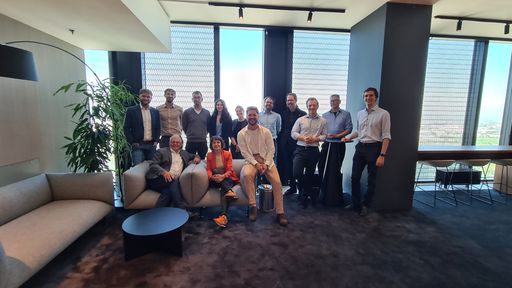The rules of the Corporate Sustainability Reporting Directive (CSRD), which will gradually become effective in the coming years, mean an obligation for sustainability reporting for numerous Austrian companies. Many of these – even those who voluntarily start implementation earlier than necessary – will have difficulty meeting the requirements, as SMEs in particular do not have sufficient capacity for internal sustainability departments. This applies in particular to the EU taxonomy, which is to be used in addition to the CSRD. According to the EU taxonomy, a company’s economic activities must be declared as sustainable or non-sustainable. The regulation includes extensive and detailed criteria that are not easy to understand for untrained people. In the recently launched research project “AI Enabled Sustainability Jurisdiction Demonstrator”, also known as “Analyser”, a research consortium wants to develop AI-based modules that enable even untrained users to fulfill the legal reporting requirements. This is intended to make things easier for companies.
„The ultimate goal of our project is to increase the number of SMEs that are independently able to report the EU taxonomy in good quality
“, explains Maximilian Nowak, who leads the project at Fraunhofer Austria. The consortium, consisting of Fraunhofer Austria, University of Innsbruck, TU Vienna, Leiwand AI, PwC Wirtschaftsprüfungsgesellschaft, the Lower Austria business agency ecoplus, Murexin and Lithoz, will automate parts of the process with the help of artificial intelligence. A chatbot, which is based on a specially created language model, is intended to communicate with users and ensure that all required documents are available, because creating the report requires a large amount of information.
Many questions need to be clarified as part of sustainability reporting: What economic activities are there in the company? How extensive are these? Which of these are suitable for taxonomy, i.e. can they even be evaluated according to the criteria? Josef Baumüller, who is involved in the project from the TU Vienna, says: “Many people are not yet aware of how complex the requirements are for data collection and then for classification. The process landscape in the company must be recorded and adapted to the requirements of the EU taxonomy. In addition, relevant data needs must be identified and, in the interests of efficiency, existing data stocks must be used
“
Stefan Merl from PwC Österreich GmbH Wirtschaftsprüfungsgesellschaft also says that support for companies is essential: “We are already seeing a massive increase in inquiries from companies, particularly SMEs, who see that meeting CSRD reporting obligations is a major challenge. There is no way around developing an automated solution that goes far beyond the level of automation of existing tools. This is exactly what we want to achieve in the Analyzer project
.“
It is essential that the AI used in the tool works fairly, comprehensibly and correctly. To achieve this, Leiwand AI GmbH brings the necessary expertise to the project. Mira Reisinger, Data Scientist at Leiwand AI says: “In a matter as critical as sustainability reporting, it is particularly important that measures are taken to ensure a reliable and fair AI solution. By using various methodologies around sustainable and trustworthy AI, we will help ensure that the analyzer provides trusted information, is fair in terms of bias and discrimination, and is in line with the EU AI Act.
“
The project started in autumn 2024, runs for three years and is funded by the FFG with funds from the Federal Ministry for Climate Protection, Environment, Energy, Mobility, Innovation and Technology.
